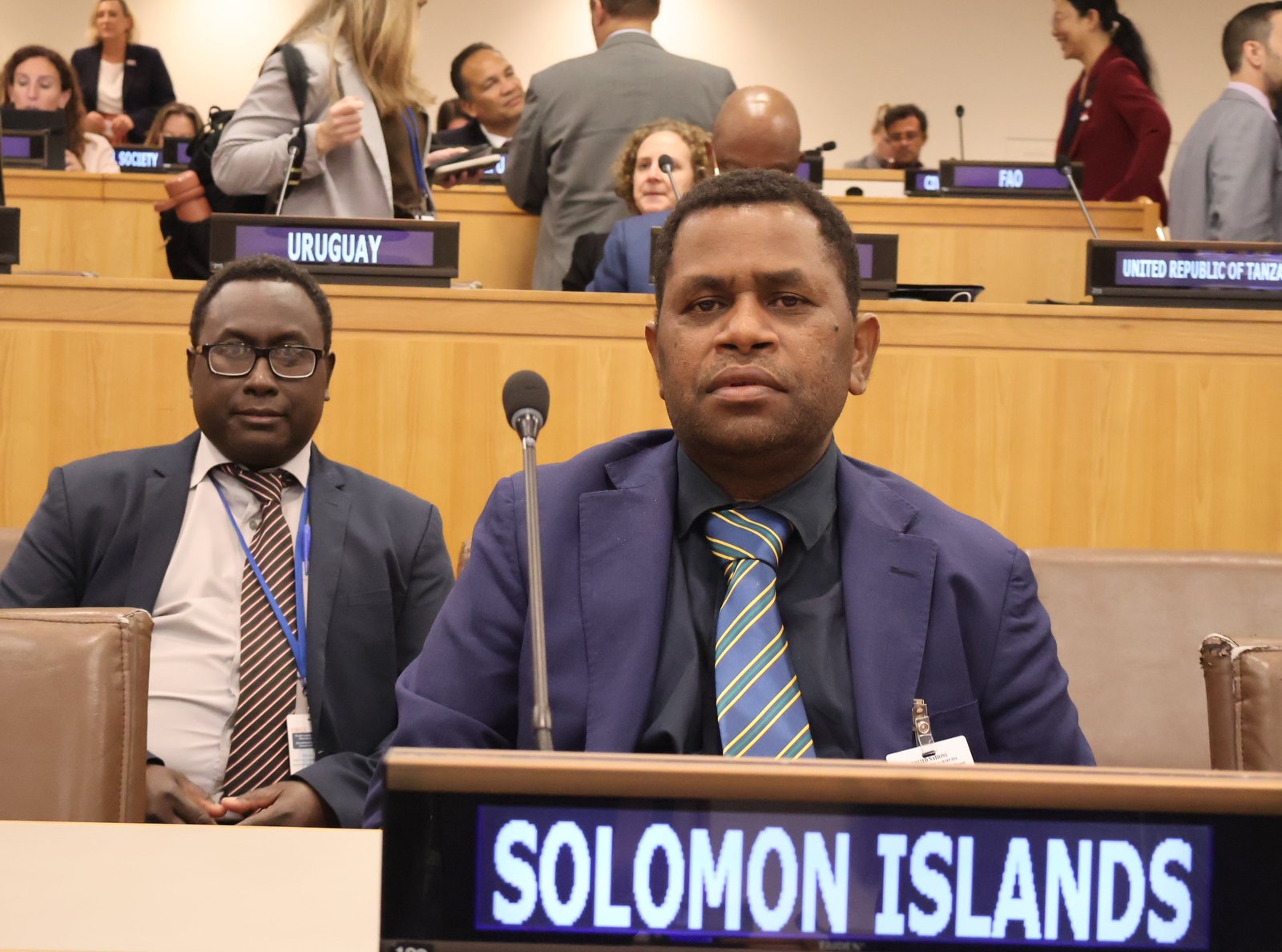
Solomon Islands calls for urgent action to address global Antimicrobial resistance
Solomon Islands has joint forces with World leaders calling for urgent high-level action to address global scourge of Antimicrobial resistance, AMR.
Solomon Islands is represented at a ‘High-Level Meeting on Antimicrobial Resistance’ at the 79th session of the United Nations General Assembly by the Minister of Health and Medical Services, Hon. Paul Popora Bosawai.
Delivering Solomon Islands statement, Minister Popora expresses the urgency for a united approach to renew efforts and accelerate progress in combating the growing threat of AMR.
“The issue of AMR is transboundary, and the global community must continue to give it the attention, responses and action required to prevent it becoming a global catastrophe”, said Minister Popora.
He stressed, globally AMR is killing silently and if its threats are ignored, global health suffering is inescapable.
The Health Minister however assured, Solomon Islands is committed to be part of global community to halt or slow down the development of AMR through policy development, implementation and technical exchanges.
He acknowledge the scientific research and technical expertise rendered to member states and health systems globally….“It keeps us informed and up-to-date with developments in the AMR landscape, warning us of the serious impacts of AMR threats to our national health care system”.
Minister Popora stated, the ability to do routine sensitivity tests in main hospitals is a key government priority.
Solomon Islands (April this year) has implemented the 68th World Health Assembly recommendation that calls on member states to have in place national action plans on antimicrobial resistance and aligning it to the Framework for Accelerating Action to Fight Antimicrobial Resistance in the Western Pacific Region.
Demonstrating its commitment to the ‘One Health’ approach, Solomon Islands took a multi-sectoral strategy with the establishment of a national AMR multisectoral body comprising key government Ministries- Ministry of Health and Medical services, Ministry of Agriculture and livestock, Ministry of Environment, climate change and disaster Management, Ministry of Fisheries and Marine Resources and Ministry of Finance and Treasury.
Implementing AMR Multisectoral National Action Plan is not without challenges but with a multisectoral approach, its strengths and opportunities are immeasurable.
Minister Popora acknowledge the support by WHO for small island developing states, with the assistance of other partners to address this public health threat through the One Health approach.
The High-level Meeting on Antimicrobial Resistance (AMR) serves as the foundation for executing policies and ensuring accountability for strengthening health systems against AMR. The focus now is on enhancing international cooperation, promoting the responsible use of antimicrobials, and advancing the development of new treatments to safeguard global health.
Ends//.
-GCU Press Release
